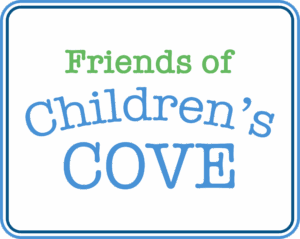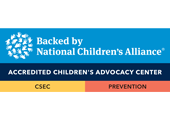Our Take: Online Safety Critical in 2026
December 17, 2025
In 2025, Children’s Cove partnered with The Monomoy Regional School District, Mashpee School District, and The Institute for Responsible Online and Cell Phone Communication (IROC2) to provide online safety and digital mindfulness information to students from 3rd to 8th grade. The tremendous success of these programs has laid the groundwork for a wider community presentation in 2026.
During his programs, Richard Guerry, Executive Director and Speaker for IROC2, delivers Digital Mindfulness and Online Safety information with infectious energy, ensuring high engagement with students. Following his visits, we received rave reviews and positive feedback from students, teachers, faculty, and parents. With the rapid growth of technology and the concerning rise of online facilitated crimes against children, Children’s Cove is bringing more than a dozen presentations to students and the community in January and February 2026.
Through our dialogue and conversations with students, we gained deeper insight into how much children understand about technology, the risks they face, and the even greater risks they may encounter in the future. What started as a simple engagement exercise last spring led to a sobering realization: children who haven’t even entered high school, who interact regularly with others online, are already finding themselves engaging with people who mean to do harm.
As Richard Guerry states in his presentation, “With new technology comes even faster methods of communication and innovation; these children are ultimately those who face all of the risks.”
While concerns about technology’s impact on children have existed for years, an even greater awareness of these risks is now growing worldwide. In the beginning of 2025, Brazil banned the use of smartphones in their schools, a move currently being discussed here in Massachusetts. In the second week of December this year, the government of Australia banned social media platforms for children under the age of 16. Pediatricians and social scientists are even beginning to discuss whether the implementation of technology as learning devices is having a positive effect at all.
It is our responsibility as a Child Advocacy Center, and as parents and caregivers across our community, to both understand and teach children how to effectively and safely use internet-enabled devices like cell phones, video game systems, and computers. We need to make certain children understand the importance of not sharing personal information online, and that ALL their actions online are Public and Permanent®.
With new technology comes even faster methods of communication and innovation; these children are ultimately those who face all of the risks.”
To start the new year, Children’s Cove is proud to be partnered with seven schools and youth-serving organizations to bring this essential information to the children, parents, and caregivers of our community.
Events Schedule: January and February 2026
January 6, 2026:
- Chatham Elementary School, students and faculty, grades 3-4
- Monomoy Regional Middle School, students and faculty, grades 5-7
- Community presentation for parents and community members
- Monomoy Regional Middle School
- Time: 6:00pm
January 7, 2026:
- Harwich Elementary School, students and faculty, grades 3-4
- Community Presentation for parents and community members
- Quashnet Elementary School
- Time: 6:00pm
January 14, 2026:
- Martha’s Vineyard Boys and Girls Club, all participants
- Community Presentation for parents and community members
- YMCA of Martha’s Vineyard
- Time: 5:00pm
January 21, 2026
- St. Pius X School, students and faculty, grades 3-4
- Pope John Paul II School, students and faculty, grades 5-8
- Community Presentation for parents and community members
- Pope John Paul II School
- 6:00pm
January 22, 2026
- Nauset Middle School, students and faculty, grades 5-8
- Community Presentation for parents and community members
- Nauset Middle School
- 6:00pm
February 4th, 2026
- Community Presentation for parents and community members
- Hyannis Youth and Community Center
- 6:00pm
We express our deepest gratitude for each school district and community organization that has partnered with Children’s Cove to bring this essential information to the communities we serve. We also want to thank the Friends of Children’s Cove and the Martha’s Vineyard Community Foundation for providing funds to ensure this critical information reaches Martha’s Vineyard children.
If you are a parent or community member and would like to learn more about these upcoming programs, please contact Jacob Stapledon, Community Engagement and Education Program Manager by emailing him at jacob.stapledon@childrenscove.org







